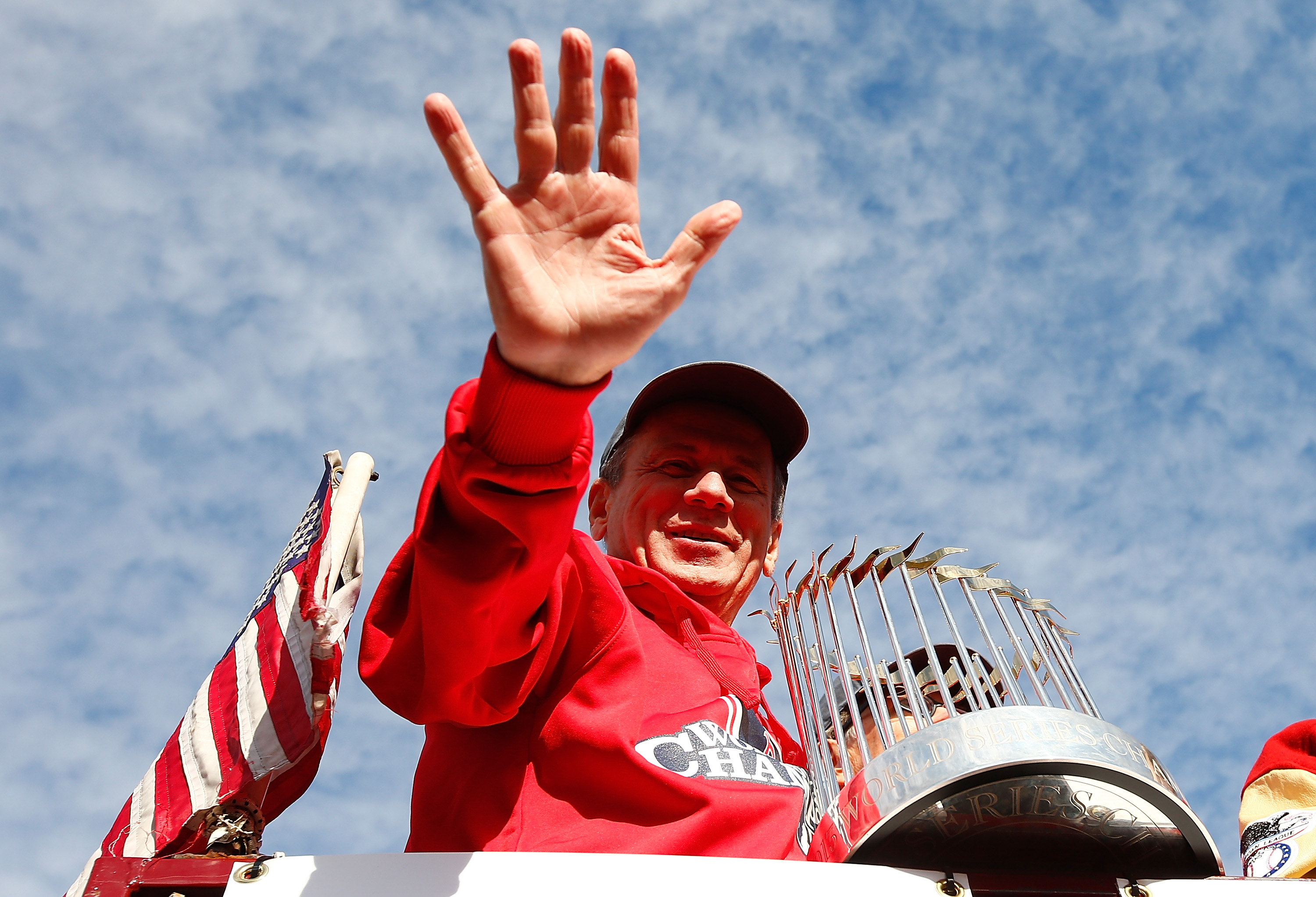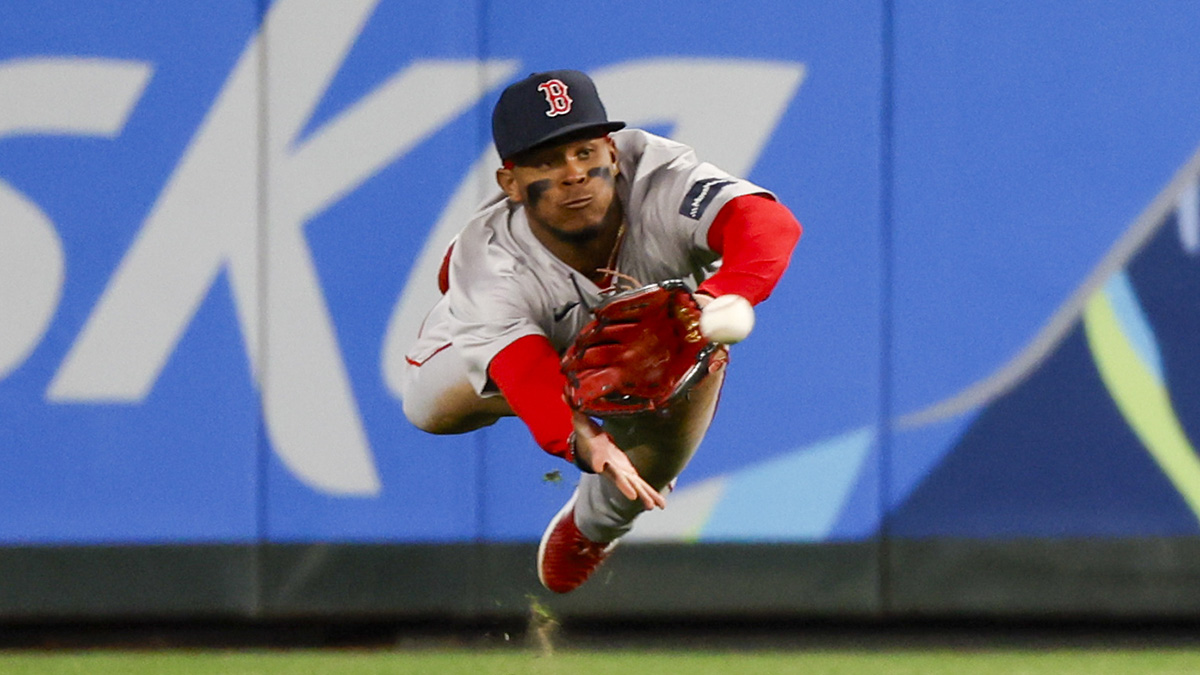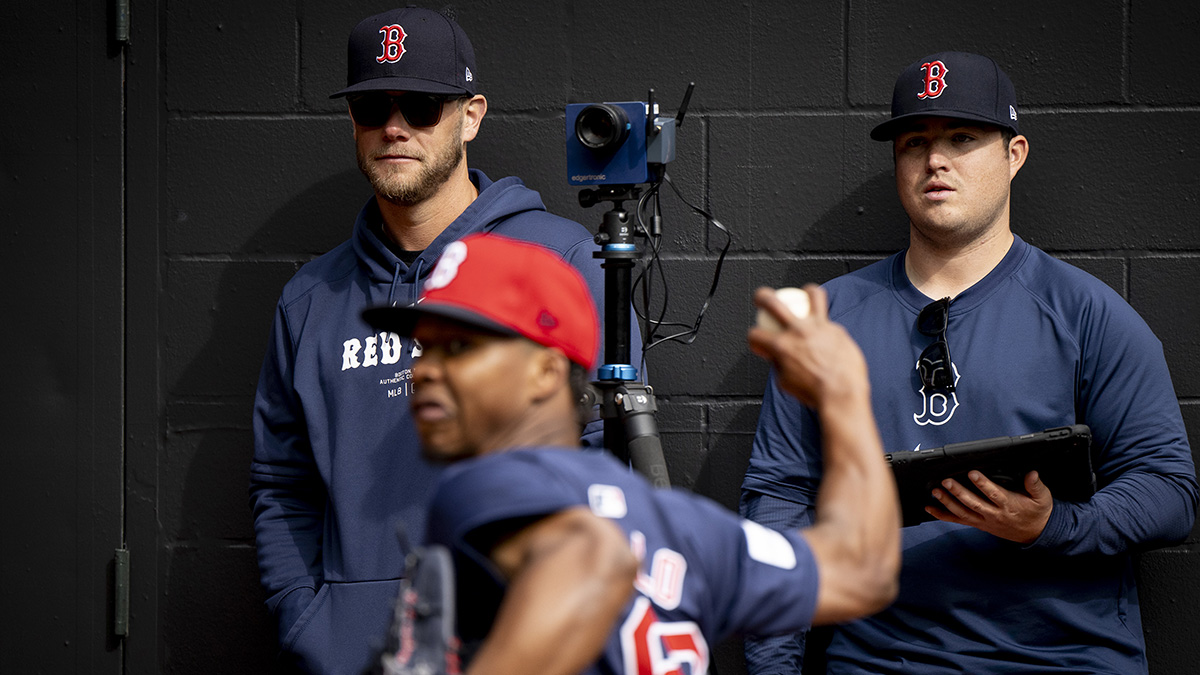Anyone who crossed paths with Larry Lucchino over the years probably had the same thought at the sad news Tuesday of his death: He seemed like someone who'd live to 100 on sheer tenacity.
Described as Boston's bad cop, a bulldog, and another inglorious B-word he undoubtedly wore with pride, Lucchino did as much as anyone to remake the Red Sox from cursed sad sacks to one of the most valuable brands in professional sports.
His success building ballparks alone, from Camden Yards to Petco Park, merits a spot in the Baseball Hall of Fame. But his impact on the Red Sox is what he'll be remembered for locally, with his influence still permeating the organization.
Stay in the game with the latest updates on your beloved Boston sports teams! Sign up here for our All Access Daily newsletter.
The Monster seats, the Red Sox Foundation, the Run to Home Base, the transformation of the front office under Theo Epstein, not to mention four World Series titles -- Lucchino played a hand in all of it. He made the on-field product continually relevant with his focus on acquiring stars, as well as his willingness to engage and enrage his enemies.
He took particular glee in jabbing the Yankees, whom he memorably dubbed "the Evil Empire" during the pursuit of Cuban right-hander Jose Contreras in 2001. George Steinbrenner may be long gone, but the name sticks to this day.
It's hard to imagine anyone being better at the job of running a team, especially on the business side. Lucchino was exacting, relentless, and brilliant. An undersized point guard at Princeton alongside future Hall of Famer and U.S. Senator Bill Bradley, Lucchino brought the same pugnacious drive that befit his working-class Pittsburgh upbringing to the Red Sox front office.
He had no problem playing the heavy, and he had his quirks. Multiple coworkers recall Lucchino's habit of dressing down anyone who tried to shuffle by him in the hallway without making eye contact and saying hello. He demanded engagement and competence, and he had no problem making his point via high-decibel diatribe; he once admitted his default approach could be "scorched earth."
But he also treated his underlings with fierce loyalty. His protégé and replacement as CEO, Sam Kennedy, noted that Lucchino invariably had the same message for departing employees: "We'll leave the lights on for you."
In a lengthy 2004 interview about Lucchino, owner John Henry sounded in awe of his ownership partner.
"For some reason Larry is often perceived as the bad guy," Henry told me. "I am sure it is because he is outspoken, candid and a very tough opponent. But I've seen a couple of players and non-players point fingers at him publicly when he is their biggest supporter in the front office. I am not exaggerating."
He could be challenging to interview, and woe to the reporter who asked a question without having their facts straight. A Yale-educated lawyer, Lucchino started many a response with a vaguely condescending, "To be sure..." which was fitting, because decisiveness was his stock in trade.
"You ask where the franchise would be without Mr. Lucchino. I can't imagine this franchise in 2004 without him," Henry told me back then. "This is not something I would say lightly: The Larry Lucchino I know is the person I most want to work with the rest of my life."
It didn't work out that way. Lucchino stepped down in 2015 in the midst of a last-place season, replaced by Kennedy. Whether he chose to leave or was forced out, the time had come for a change in leadership. Lucchino spent his final years in charge of the Triple-A Worcester Red Sox, and it's fitting that his last major act as an executive was building Polar Park in Worcester's Canal District.
The story of how that park came to be – from spurning Pawtucket to the battle over financing to the final price tag of $160 million – was pure Lucchino. He ruffled feathers, he drove a hard bargain, and he got what he wanted.
Last year, Polar Park was voted the best Triple-A ballpark in America. And that may be Lucchino's ultimate legacy -- gone too soon at age 78, he left cities better than he found them.



